French election 2024: Hard-right National Rally party makes big gains in polls
French President Emanuel Macron’s political strategy to call snap elections has backfired, and Paris has seen more violence. This is how the election works.
World
Don't miss out on the headlines from World. Followed categories will be added to My News.
The night after the far right made striking gains in the first round of France’s parliamentary elections, rioting engulfed the streets of Paris as thousands of left-wing voters expressed their rage at the advance of Marine Le Pen’s far-right National Rally (RN).
Riot police were sent across the city as rioters set fire to garbage bins and smashed shop windows in protest to Le Pen’s party grabbing a historic 33 per cent of the vote.
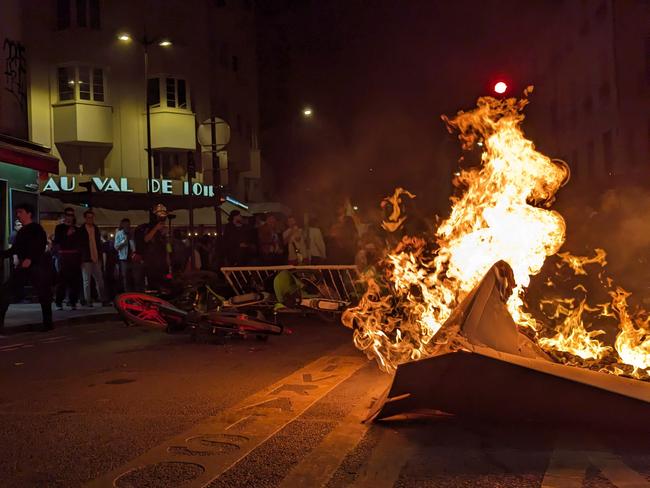
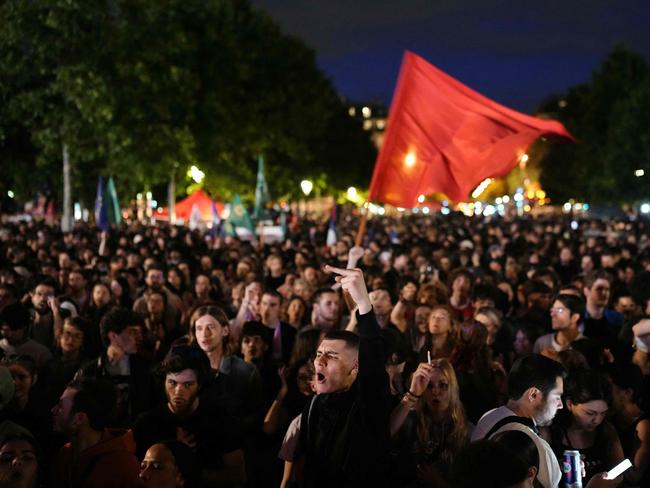
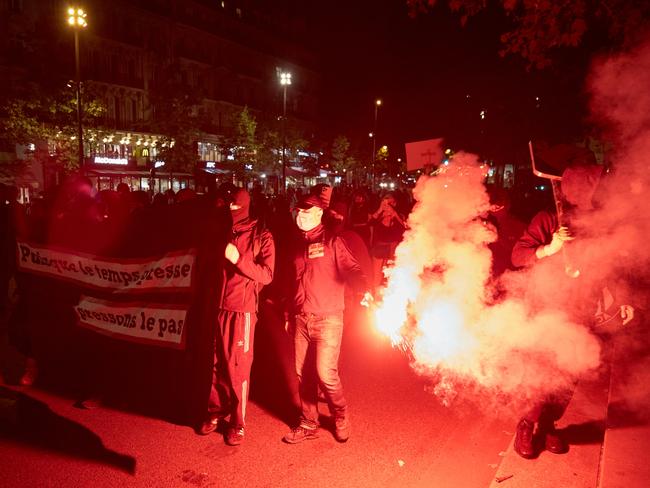
European media outlets have widely reported of the “failures” by French President Emmanuel Macron that enabled the far-right party to top the polls last week.
German media slammed Macron for throwing the country’s politics into disarray with his decision to call snap polls.
Conservative newspaper Die Welt argued that “the election buried Macronism” and the president’s miscalculated ultimatum that voters choose him or chaos.
Leftist newspaper Suddeutsche Zeitung said Macron’s “gamble” “opened the door to the far right.”
If Le Pen’s party takes power it will “be [Macron’s] failure, his fault,” Suddeutsche Zeitung wrote.
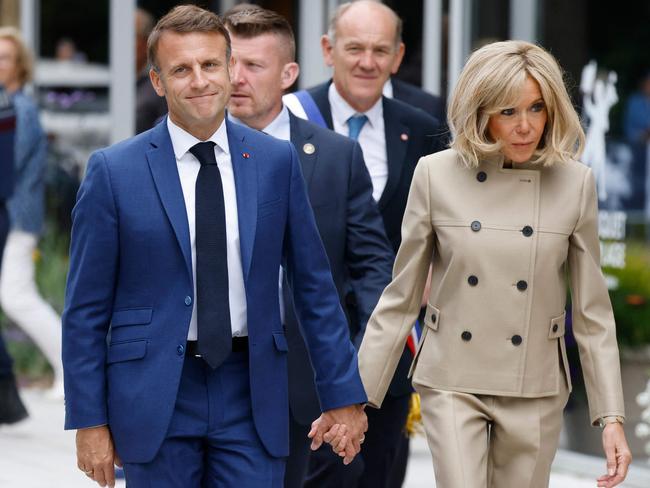
The paper said that the French were fed up with Macron’s “optimism and self-glorification”.
If the RN obtains an absolute majority in the July 7 run-off, party chief Jordan Bardella, Marine Le Pen’s 28-year-old protege with no governing experience, could become prime minister in a tense “cohabitation” with Macron, reported conservative paper Frankfurter Allegemeine Zeitung.
“France could be absent from the EU and NATO for years,” the paper said. “Russia would like that.”
In Italy, Il Corriere della Sera was scathing: “History will decide whether Macron was the man who delayed this disturbing metamorphosis or the one who handed France to the new right.”
It comes as Marine Le Pen’s far-right National Rally party took the lead in the first round of France’s parliamentary elections, taking it closer to the gates of power than ever before.
French Prime Minister Gabriel Attal urged voters not to give the far right “a single vote” in the second round of voting after National Rally (RN) took the lead.
“The far right is at the gates of power,” Mr Attal said, warning that the party risked winning an absolute majority.
“Our objective is clear: to prevent the RN from getting elected in the second round. Not a single vote must go to the National Rally.”
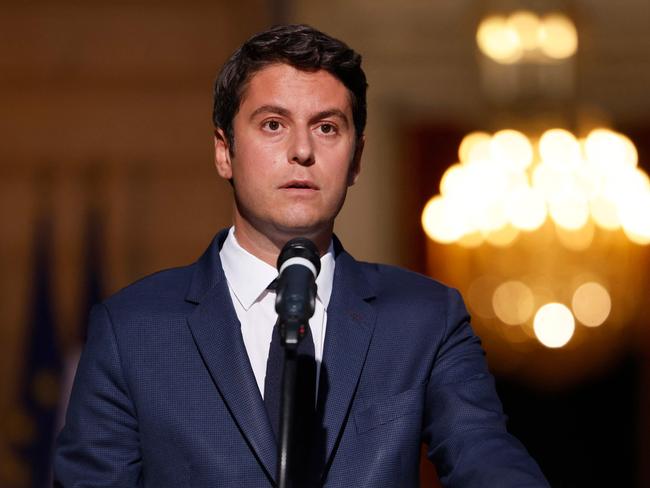
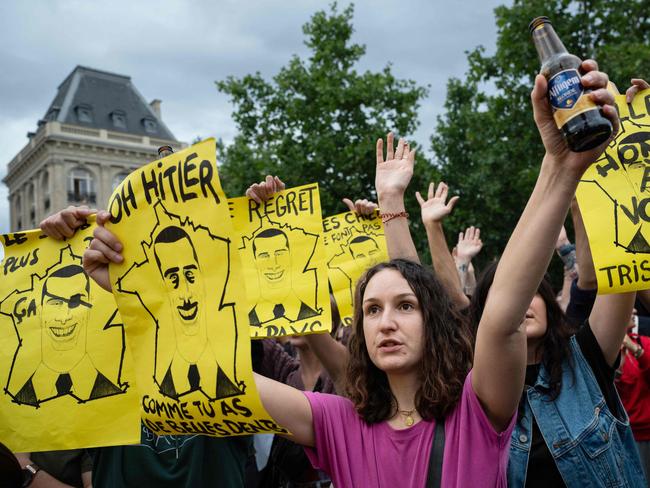
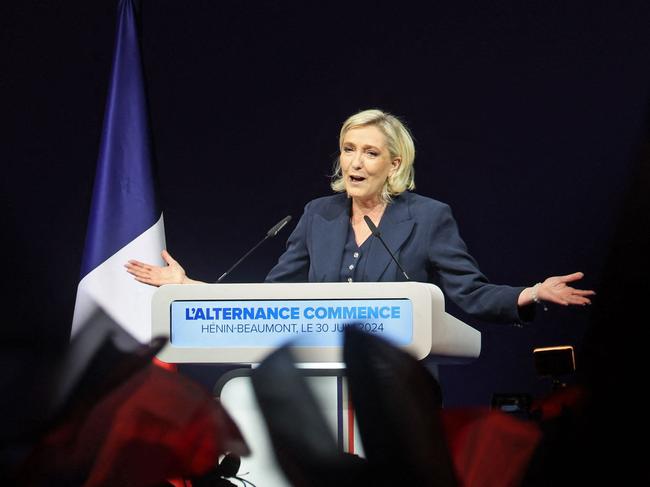
Longtime far-right leader Ms Le Pen said voters needed to give her National Rally an absolute majority in the second round of parliamentary elections — which will be held on July 7 — so party chief Jordan Bardella can become premier.
“Nothing is won and the second round is decisive,” Ms Le Pen told supporters after the RN came out on top in the first round of snap polls.
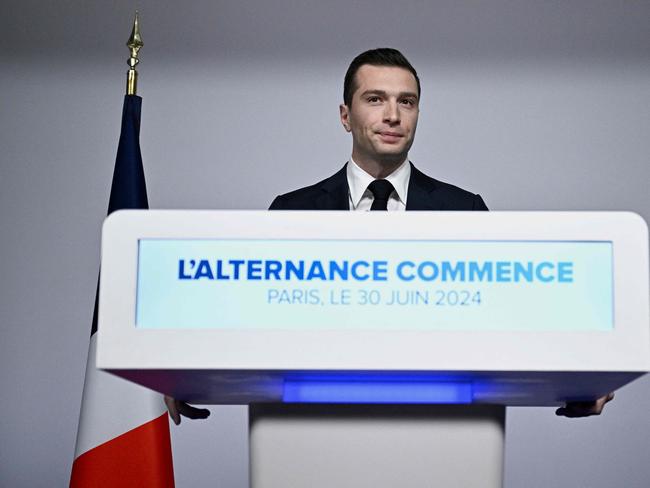
“We need an absolute majority so that Jordan Bardella is in eight days named prime minister by (President) Emmanuel Macron.”
The election, which Macron called after his party was battered by the RN in European parliament elections earlier this month, could leave him to see out the remaining three years of his presidential term in an awkward partnership with a prime minister from an opposition party.
Find out all you need to know about the French election in this five minute guide.
WHY DOES THE FRENCH ELECTION MATTER?
The election was called by President Emmanuel Macron because of the rise of the far right in France.
Footballer Kylian Mbappé has warned young people not to vote for “the extremes”, while Mr Macron has couched the election as a battle for the soul of France, telling reporters: “To be French is to rise to the challenge of the epoch when necessary”.
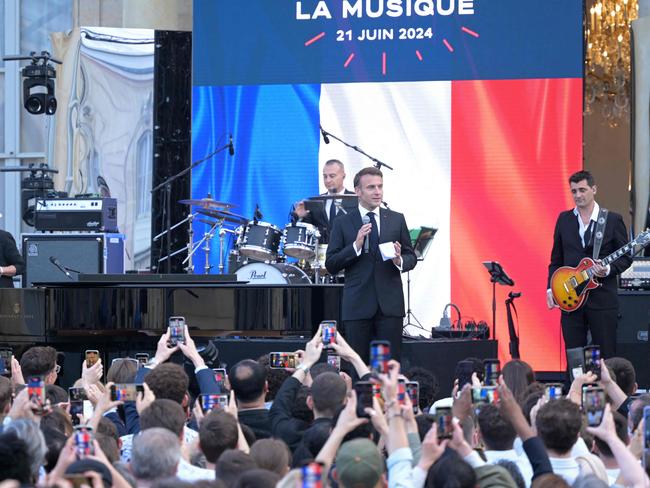
Under the leadership of Marine Le Pen, the National Rally (formerly the National Front) has dumped or gone quiet on many of its former policies, but questions remain as to what a party with stridently nationalistic and racist roots could do once it is in power. With a history of being anti-EU, soft on NATO and friendly towards Russia, the security implications for Europe, and for Ukraine, are immediately apparent.
WHEN ARE THE FRENCH ELECTIONS?
There are two poll dates: Sunday June 30 and Sunday July 7. Voting continues until 8pm on both days, after which the ballots are counted.
HOW DO THE FRENCH ELECTIONS WORK?
In the first round, voters in the 577 different seats of the lower house, the National Assembly, cast their ballot for their preferred representative.
If no candidate receives an absolute majority, which is a common occurrence, voting moves to a second round. Any candidate who received less than 12.5 per cent of constituent votes in the first round is eliminated. The candidate who receives the most votes in the second round is elected, even if this does not entail an absolute majority.
The President appoints the prime minister. By convention, this is usually by the leader of the party that has won the most seats – but not necessarily. The President could technically appoint any regular citizen as a minister or even prime minister, so long as it had the support of a majority of the National Assembly.
WHY WAS THE ELECTION CALLED?
Mr Macron dissolved the National Assembly and called the election on June 9. Such a move is rare but not unheard of in French politics – it’s been done six times since 1958.
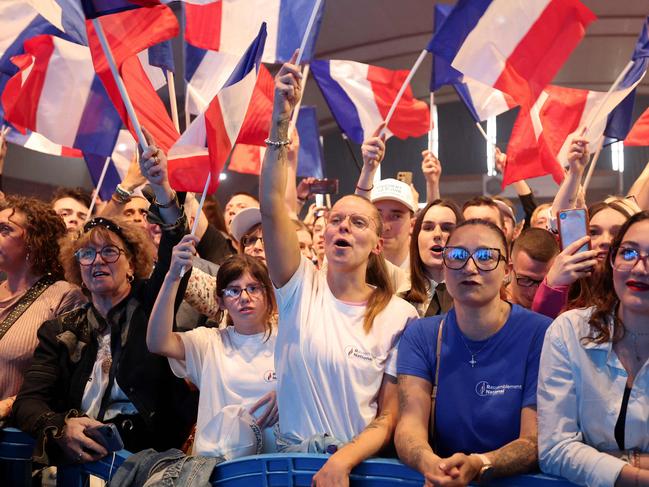
The snap election came after the National Rally stormed to its best-ever results in the European Parliamentary elections, with 33 per cent of the vote. With support for Macron’s own centrist party Renaissance falling to new lows (19 per cent), supporters of the President said the European results had created anxiety, misunderstandings and anger.
Mr Macron himself is not up for re-election – he remains President until 2027, and has said he will not resign, irrespective of the result of the National Assembly election result.
WHY SUCH A QUICK ELECTION CAMPAIGN?
In Australia we’re used to long drawn-out election campaigns, preceded by months of pre-campaign posturing by political parties. It’s similar in France – but under the article of the Constitution that Macron used to dissolve the National Assembly, elections must be held somewhere between 20 and 40 days later. And the following Sunday in July is the 14th, Bastille Day, which could not be used for either a first or second round vote.
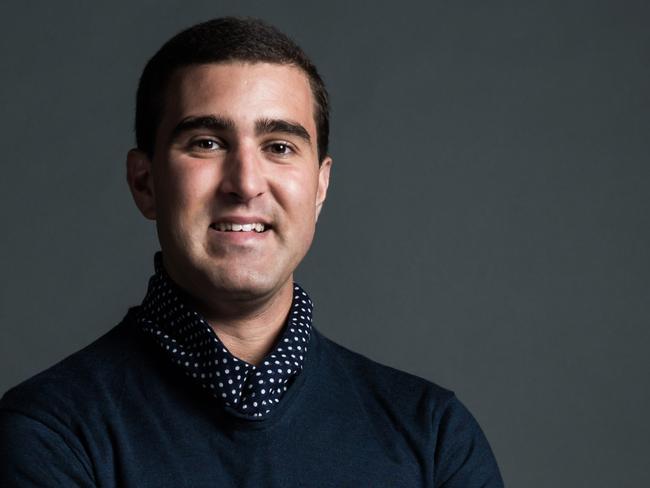
WHY DIDN’T MACRON WAIT UNTIL AFTER THE OLYMPICS?
The eyes of the world will be on Paris between July 26 and August 11 for the Games of the 33rd Olympiad – the sort of big popular sporting circus that politicians often use to their electoral advantage. So why isn’t Emmanuel Macron doing this?
It’s because July and August are the French holiday months, explains Dr Romain Fathi, expert in French political history at ANU.
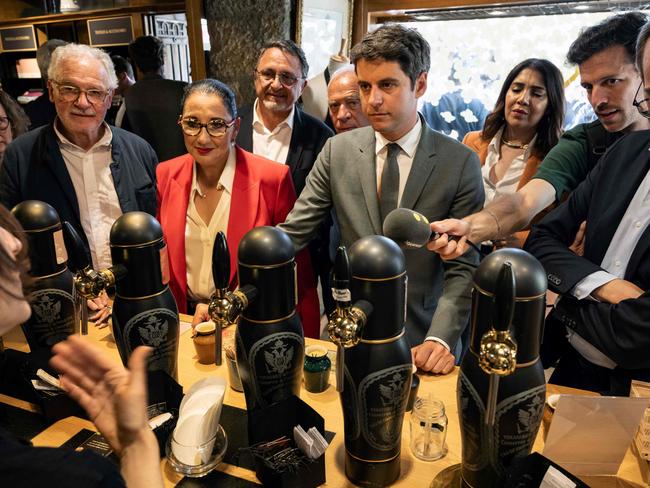
“Organising a political campaign while the French are sitting at the beach drinking rose … The French would have been: ‘It’s the summer, I want to switch off.,” he says. “The equivalent in Australian terms would be to organise a general election between 15th of December and 15th of January. It wouldn’t go down well with the population.”
There had also been rumours that a coalition of far left and far right politicians were planning to topple the government when parliament resumed in September.
“In that situation if you’re president and you’ve got a weak minority and you know the guillotine is coming, you might as well call an election early, before your opponents can organise themselves,” says Dr Fathi.
WHO IS LIKELY TO WIN THE ELECTION?
The National Rally achieved its best-ever result in the recent European parliament elections, with 37 per cent of the vote – but only 52 per cent of French people actually cast a ballot, and turnout for the coming national election is expected to be around 80 per cent.
There is also a strong tradition of French voters using the European parliament elections to protest the dominant power at the national level, Dr Fathi says.
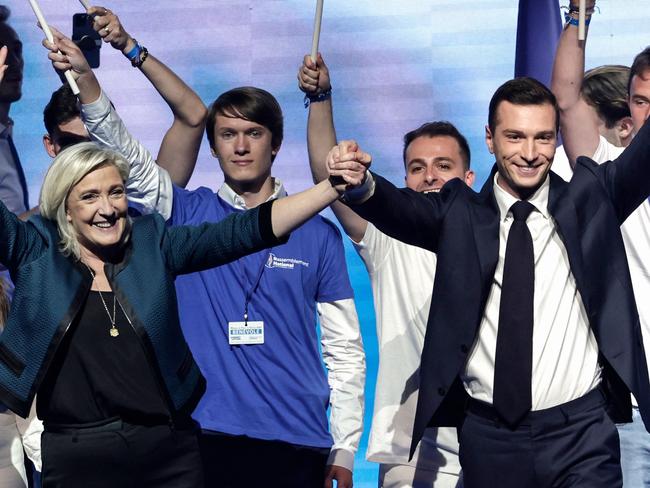
“It’s called sanction voting … just to kind of flip them the bird, if you will,” he says.
Polls suggest the National Rally will win the most votes, but not the 289 seats required for an absolute majority in the lower house.
National Rally president Jordan Bardella has said he will only govern with an absolute majority, saying he will “be neither powerless nor an aide to the President of the Republic”.
WHY DOES AUSTRALIA CARE?
Much closer to Australia, there are also concerns about what a refigured France might mean for New Caledonia as it grapples with an increasing push towards independence.
Commentators believe a more divided France – a nuclear power that is also a permanent member of the UN Security Council – could have implications for other global issues such as climate change and Chinese expansionism.
WHAT ARE THE ROLES OF PARLIAMENT, GOVERNMENT AND THE PRESIDENT?
If Mr Macron appoints Mr Bardella as Prime Minister it will be what the French term a “cohabitation” – a period when the French president and government are of different political viewpoints. There have been three such periods since the early 1980s.
Crudely described, the Prime Minister is largely responsible for domestic issues, while the President is responsible for foreign issues, including defence – but the government will still have a Foreign Minister, making things confusing and awkward.
Every Wednesday during session, the ministers of the government must front the National Assembly for question time. The National Assembly is regarded as “the emanation of the people of France,” Dr Fathi says.
WHO ARE THE KEY PLAYERS AND WHAT ARE THEIR CHANCES?
MARINE LE PEN
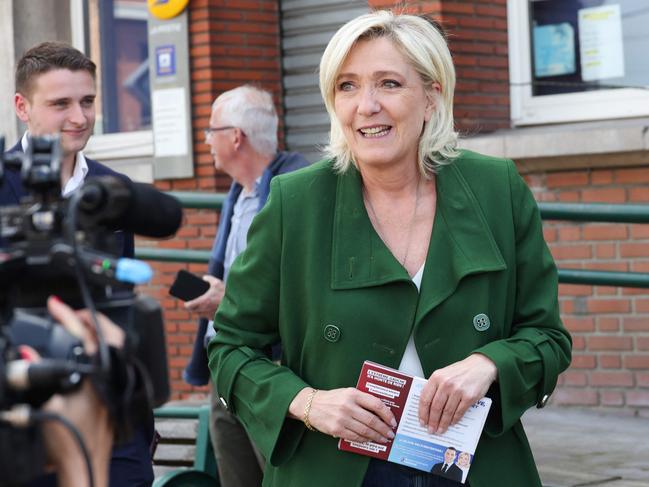
AGE: 55
POSITION: Leader of the National Rally MPs in most recent parliament
PARTY: National Rally
The National Rally’s perennial candidate for president (she’s tried three times) Marine is the daughter of the far right firebrand Jean-Marie Le Pen, but she has also been instrumental in moving the party towards the political centre. She was leader of National Rally MPs in the most recent parliament, but with an eye on another presidential run in 2027, she will not seek the prime ministership, should her party triumph at these elections.
GABRIEL ATTAL
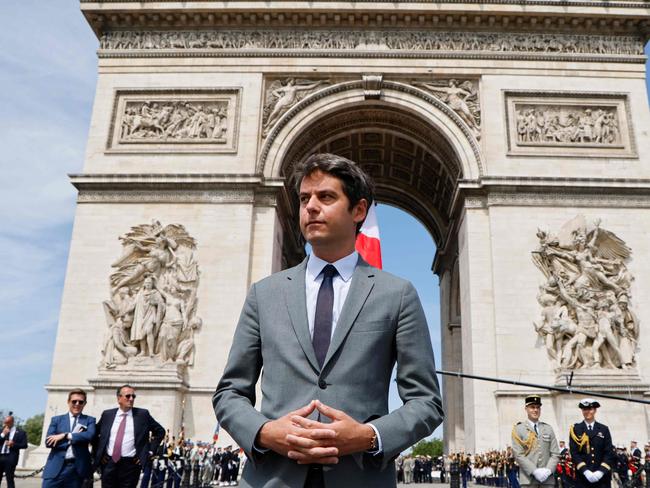
AGE: 35
POSITION: PRIME MINISTER
PARTY: RENAISSANCE
Articulate, ambitious, telegenic and openly gay, Attal was appointed prime minister in January 2024, making him the fourth prime minister to serve under President Macron. Touted as a possible centrist successor to Macron in the 2027 presidential elections, a poor showing at these elections could dim his future political prospects.
JORDAN BARDELLA
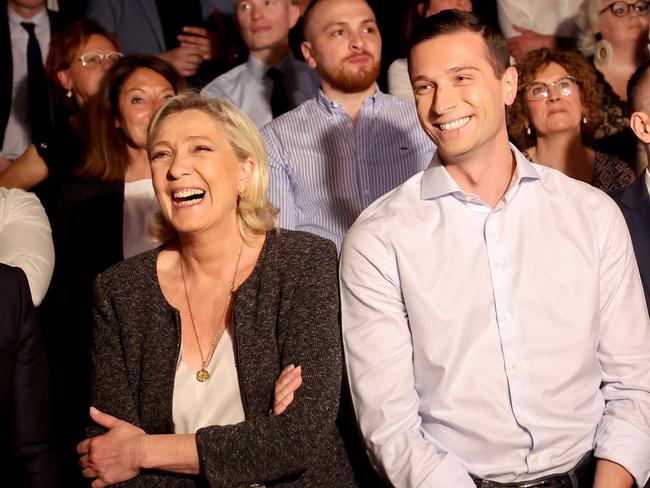
AGE: 28
POSITION: NATIONAL RALLY PRESIDENT
PARTY: NATIONAL RALLY
Younger even than Attal, well dressed and dimple-faced, with lots of social-media savvy, Mr Bardella could be the next Prime Minister of France if the National Rally performs well at the elections – or face disgrace if it performs poorly. He has proposed bringing the retirement age forward to 60, and suggested a softening of support for Ukraine, but in many policy areas, including immigration, environment, culture and education, Bardella and the National Rally are not proposing a “coherent political line,” offers Dr Fathi.
“Right at this minute they are looking at where the wind is going and saying that’s what we’re going to do,” he says.
EMMANUEL MACRON
AGE: 46
POSITION: PRESIDENT
PARTY: RENAISSANCE
A transformative politician, Macron established the centrist En Marche party in 2015 (renamed Renaissance in 2022) and stormed to victory in the 2017 presidential elections. He won a second term in 2022 but lost his absolute majority in the National Assembly. Moves to bump up the retirement age from 62 to 64 have proved deeply unpopular with voters. Constitutionally limited to two terms, Macron will stay president until 2027, but his ability to pursue a coherent, centrist agenda will be largely impossible if the National Rally forms government.
Originally published as French election 2024: Hard-right National Rally party makes big gains in polls




